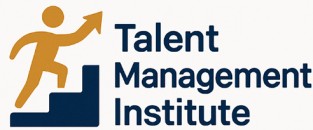
Understanding Talent Management Systems
Getting to Know the Basics of Talent Management Systems
Talent management is a strategic approach to attracting, developing, and retaining employees. It goes beyond simple human resource management to encompass a broader set of processes and practices aimed at enhancing the capabilities and potential of the workforce. By understanding talent management systems, companies can effectively align their employees with the organization's goals, fostering a more engaged and productive workplace. A talent management system is a comprehensive solution designed to support various HR processes such as recruitment, employee performance, learning and development, and succession planning. Its purpose is to streamline these processes, making them more efficient and integrated, ultimately leading to better decision-making and improved employee outcomes. Why Companies Adopt Talent Management Systems The adoption of talent management systems is primarily driven by the need for efficiency and effectiveness in managing the workforce. Here are a few reasons why organizations invest in these systems:- Centralized Data Management: A talent management system consolidates employee information, making it easier to analyze and access critical data for strategic decision-making.
- Enhanced Communication and Collaboration: By integrating various HR functions, these systems facilitate better communication and collaboration across departments, enhancing overall productivity.
- Improved Employee Experience: With streamlined processes and easier access to resources and tools, employees have a smoother and more engaging experience.
- Scalability: As companies grow, talent management systems can evolve to meet the changing needs of the organization, providing flexibility and scalability.
The Role of Software in Talent Management
Software as a Catalyst for Talent Management
Incorporating the right software into your talent management processes can truly transform the way organizations manage their talent pool. A talent management system is no longer a 'nice-to-have,' but rather an essential component that facilitates more efficient and effective management practices. By using well-designed software, companies can streamline various aspects of workforce management, ultimately leading to better outcomes both for the organization and its employees.
Automation and Integration
One of the primary advantages of integrating software into talent management is the ability to automate various tasks. These tools allow HR teams to cut down on the time spent on repetitive tasks such as tracking employee performance, managing recruitment workflows, and developing personalized training solutions. Automation helps in minimizing errors and maintaining consistency across the board.
Moreover, these systems often provide seamless integration with other HR tools already in use, enabling a more cohesive workplace management strategy. The interconnectedness offered by software ensures that data flows smoothly across platforms, allowing managers to make informed and timely decisions.
Data-Driven Decision Making
Software solutions empower companies to leverage data to drive their talent management strategies. With comprehensive analytics and reporting features, organizations can gain insights into employee performance trends, identify skills gaps, and tailor development plans accordingly. Harnessing such data promotes a culture of continuous improvement and ensures that talent management decisions are based on factual, real-time information rather than assumptions.
For those interested in a deeper dive into how software can enhance talent management practices, explore the talent reef manager portal for insights into software integration strategies and enhancements.
Benefits of Implementing Talent Management Software
Significant Advantages of Adopting Talent Management Software
Implementing talent management software in your organization can result in an array of benefits that significantly enhance both the operational and strategic aspects of your human resources capabilities. Streamlining HR Processes One of the most immediate benefits is the automation of labor-intensive HR tasks. By deploying a sophisticated talent management software, repetitive tasks like tracking employee performance, managing training sessions, and organizing appraisals become far more efficient. This enables HR teams to focus on strategic initiatives rather than administrative busywork. Centralized Information Repository Talent management software serves as a centralized hub for all employee information, drastically reducing the risk of data silos and improving accessibility across departments. A well-integrated system ensures every piece of employee data, from recruitment to retirement, is accessible in one secure location, facilitating better decision-making processes. Enhanced Talent Acquisition and Retention By leveraging advanced analytics and data-driven insights, organizations can drastically improve their talent acquisition strategies. The software helps in identifying skill gaps, predicting future workforce needs, and tailoring recruitment processes to attract the right talent. Moreover, by offering a more personalized employee experience, these systems often elevate retention rates. Data-Driven Decision Making Empower your organization with the capability to make informed decisions with comprehensive data analytics features. The insights gleaned from a robust talent management system can guide workforce planning, drive talent development initiatives, and even reveal potential leadership within your ranks. Facilitating Employee Development and Engagement Key to any successful organization is the ongoing development and engagement of its workforce. Talent management software optimizes learning and development programs to align with individual and company goals, which in turn boosts employee engagement and productivity. For a wider view on the future trends shaping talent management, consider exploring this insightful resource.Key Features to Look for in Talent Management Software
Essential Features for Optimal Talent Management
In the ever-evolving landscape of talent management, selecting the right software can make a significant difference in how effectively an organization manages its human resources. Understanding what to look for in talent management software is crucial to streamline processes, enhance workforce capability, and align your talent strategies with business objectives. When evaluating potential software options, consider these essential features:- Comprehensive Analytics and Reporting: A robust talent management system should offer advanced analytics and reporting functionalities. These provide insights into workforce trends, employee performance, and management effectiveness, enabling data-driven decision-making.
- Seamless Integration with Existing Systems: Look for software that can efficiently integrate with your current systems. This ensures that all data remains synchronized and accessible, reducing the need for redundant data entry and minimizing errors.
- Customization Capabilities: Every organization has unique requirements. A customizable talent management software allows you to tailor functionalities to match your specific needs, optimizing the user experience for both managers and employees.
- User-Friendly Interface: Ease of use is paramount. A clear, intuitive interface ensures that both HR professionals and employees can navigate the system efficiently, maximizing engagement and minimizing training time.
- Employee Development Tools: Evaluate software that includes features for career development, such as training modules, skill assessments, and learning management systems. These tools support talent growth and retention, aligning with long-term organizational goals.
- Compliance and Security: With growing emphasis on data privacy, ensure the software adheres to industry standards for data protection and compliance. This safeguards sensitive employee information from unauthorized access.
Overcoming Challenges in Talent Management
Addressing Common Concerns in Talent Management
While adopting a talent management software system can significantly enhance your HR processes, it's not uncommon to encounter several challenges along the way. Being aware of these hurdles and having strategies to address them can make the transition smoother. One of the primary challenges often faced is user resistance. Change can be intimidating, especially when it involves learning new technology. It's crucial to involve employees in the transition process, offering comprehensive training and support to help them adapt smoothly. This approach not only eases apprehension but also boosts engagement. Data security is another vital concern. Ensuring sensitive employee information is protected must be a top priority when selecting your software. Opt for a system that is equipped with advanced security features to safeguard your data. Integration of the software with existing systems can also pose difficulties. It's important to choose a software solution that offers flexibility and compatibility with other tools you're currently using. Lastly, measuring the impact of the software might initially be challenging. Set clear objectives from the outset and regularly analyze key performance indicators to evaluate the software's effectiveness and make informed adjustments. By being proactive about these potential challenges, organizations can effectively harness the power of talent management software, thus enhancing their workforce's overall productivity and satisfaction.Future Trends in Talent Management Systems
Anticipating Tomorrow's Talent Management Landscape
The future of talent management systems is not just about adapting to new software tools; it's about leveraging technology to foster innovation and agility within organizations. As we look ahead, it's important to recognize how emerging trends and technologies will reshape the way companies manage their most valuable assets—people.- AI and Automation Integration: Automation and artificial intelligence (AI) are increasingly becoming essential parts of talent management systems. AI can streamline recruitment processes, provide personalized training programs, and predict employee needs, thereby enhancing overall workforce efficiency.
- Data-Driven Decision Making: The value of data is no longer just in its collection. Future talent management systems will focus on providing insights through advanced analytics, enabling organizations to make informed, strategic decisions regarding talent acquisition, development, and retention.
- Employee Experience Focus: As talent management evolves, there is a shift towards improving the employee experience. Future systems will likely incorporate tools that facilitate work-life balance, employee wellness, and a more personalized career development path.
- Remote and Flexible Work Solutions: With remote work becoming a staple in many industries, talent management software must adapt to support flexible working arrangements. This includes developing systems that foster virtual collaboration and ensure productivity, regardless of location.
- Enhanced Learning Platforms: Continuous learning will remain a priority, with software platforms offering customized learning paths and on-demand resources. This focus on lifelong learning will be crucial in retaining top talent and maintaining a competitive edge.



-large-teaser.webp)









